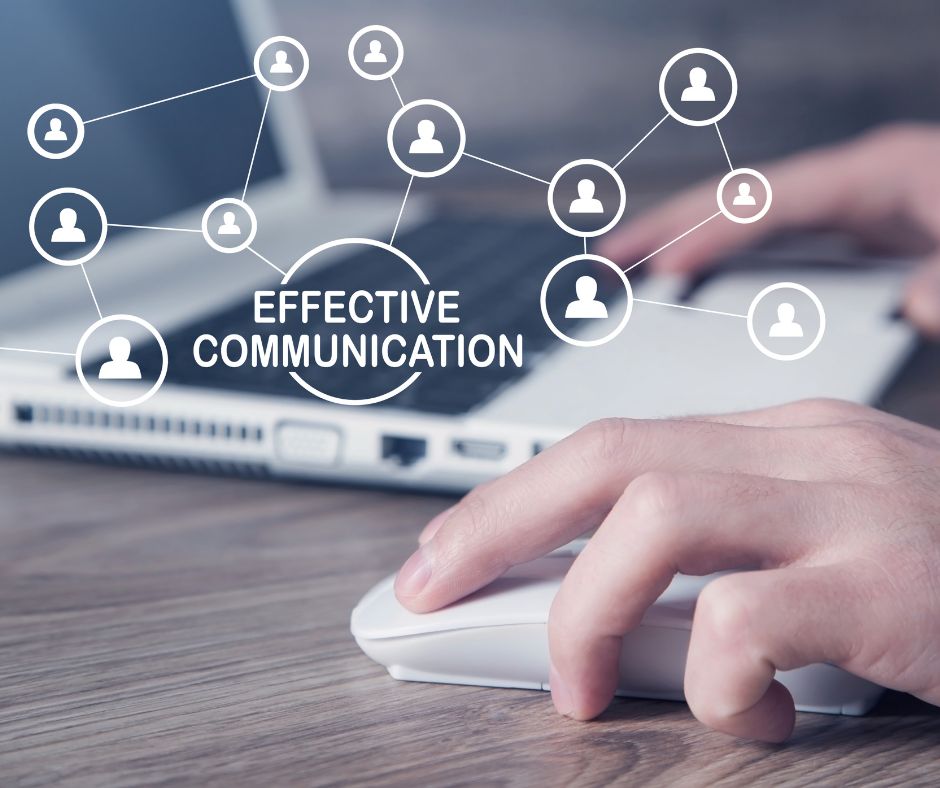
Goals for Effective Communication Skills
Communication is a crucial aspect of effective self-leadership and leadership of others. In the fast-paced world we live in, the ability to communicate effectively is essential. As leaders, it is imperative that we understand the importance of communication and develop our skills to become more effective in our communication.
Effective Self-Leadership
Effective self-leadership requires a deep understanding of yourself including how you communicate best not just with others but also with yourself. A great communicator knows how to leverage their strengths and work on their weaknesses to become a better communicator. This requires you to assess yourself frequently through self-observation.
Effective self-leadership also involves self-management. One tool to do this is emotional intelligence. Emotional intelligence is the ability to recognize, understand, and manage your emotions while also empathizing with others. When you are emotionally aware, you are more likely to build strong relationships, communicate effectively, and manage conflicts better.
As a self-leader, you should also be open to feedback – your own as well as others. Feedback is a critical tool for developing goals for effective communication skills. Be open to receiving feedback, and use it to improve how you communicate overall.
Download our FREE Guide, “5 Tips to Designing An Empowering Morning Routine,”
TODAY to create your own effective morning routine that helps you to start your day right!
Effective Leadership of Others
Effective leadership of others requires excellent communication skills that again first starts with yourself. A leader who can communicate effectively can influence their team, build strong relationships, and manage conflicts professionally.
The first step to effective leadership of others is to first lead yourself effectively. You cannot effective lead others if you are unable to effectively lead yourself. There are no shortcuts, testing in or buying in. Leadership is a journey, a learning and growth journey that is progressive. It starts with you being able to lead yourself and lead in your own life effectively before you’re able to do so in leading others.
Another aspect to effective leadership of others is to listen actively. Active listening is when you listen to understand, rather than to respond. When you listen actively, you are able to understand the needs and concerns of your team, and you are better equipped to address them.
Another critical aspect of effective leadership is your ability to provide feedback. Feedback is essential in building relationships with your team. When giving feedback, ensure that it is specific, objective, and actionable. As well as constructive rather than criticism.
Goals for Effective Communication Skills
Effective leaders also create a safe space for their team to communicate openly. A safe space is a space where team members feel comfortable sharing their ideas, opinions, and concerns. Creating a safe space fosters open communication, and it enables you to address issues before they become major problems.
Effective Communication
Effective communication is the cornerstone of effective self-leadership and leadership of others. Effective communication involves clearly expressing your message, and it requires that your message is understood as intended. Here are some key strategies for effective communication:
- Be Clear and Concise: Effective communication requires clarity. When you communicate, ensure that your message is clear and concise. Avoid using jargon or complex language that may be difficult to understand.
- Listen Actively: Listening actively is critical to effective communication. When you listen actively, you are better able to understand the needs of your audience, and you can tailor your communication to suit those needs.
- Body Language: Non-verbal communication is essential to effective communication. Pay attention to your body language, as it can convey a lot about your message.
- Be Respectful: Respect is crucial in effective communication. When communicating with others, ensure that you are respectful and that you communicate in a way that shows that you value their opinions and ideas.
Conclusion
Effective self-leadership and leadership of others require excellent communication skills. As leaders, it is crucial that we understand the importance of communication and develop our skills to become more effective communicators. Effective communication involves being clear and concise, listening actively, paying attention to nonverbal communication, and being respectful. By mastering these communication skills, leaders can build strong relationships, influence their teams, and manage conflicts more effectively.
Download our FREE Guide, “5 Tips to Designing An Empowering Morning Routine,”
TODAY to create your own effective morning routine that helps you to start your day right!
Mastering Leadership: Goals for Effective Communication Skills
January 24, 2024



